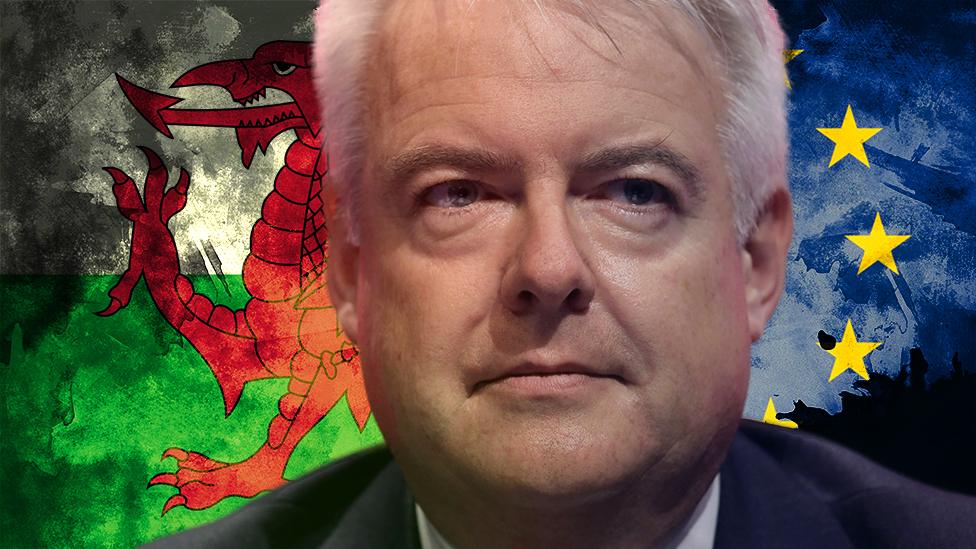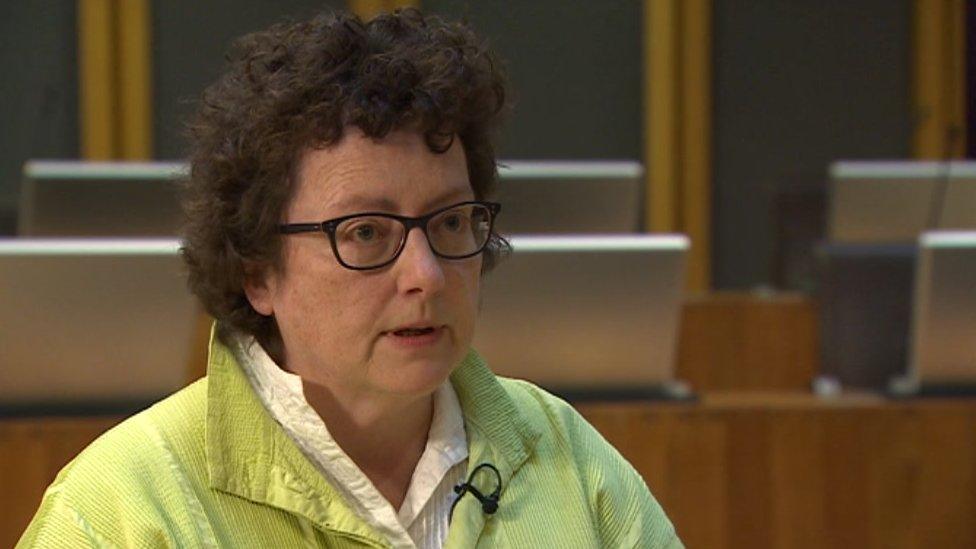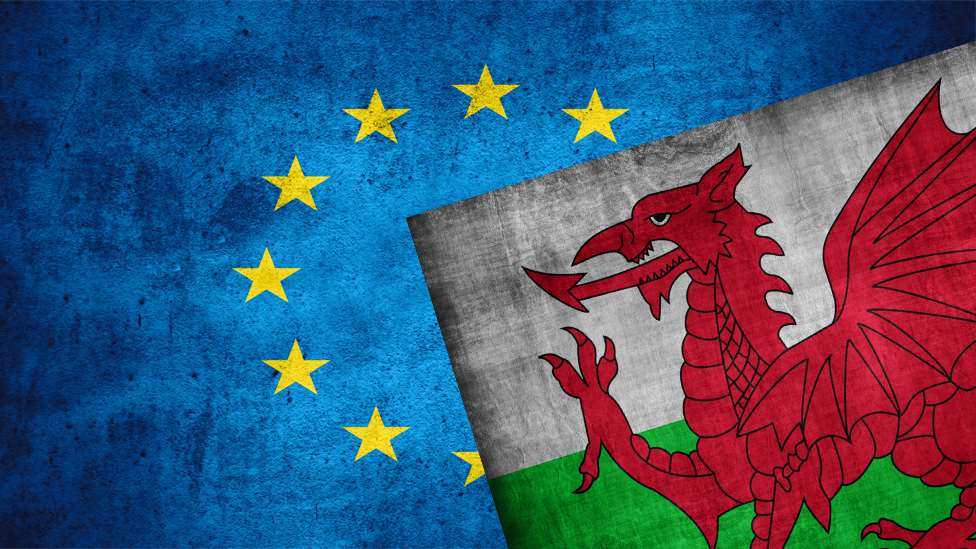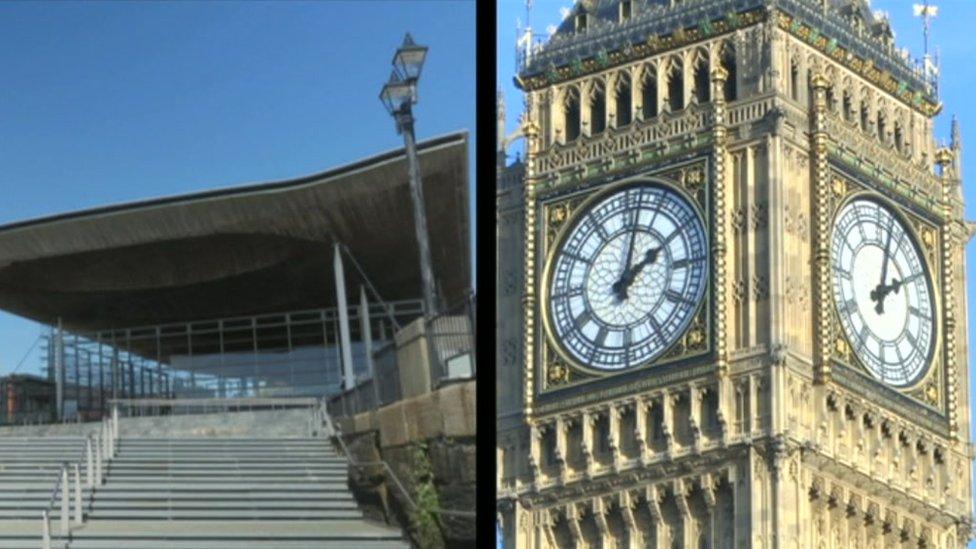Welsh Brexit powers bill push by ministers
- Published

The Welsh Government is to press ahead with plans for a law to prevent what ministers have dubbed a post-Brexit "power-grab".
The assembly will be asked to back as an emergency measure a Continuity Bill that will give it powers in devolved areas currently held at EU level.
Ministers remain opposed to UK government Brexit legislation that will hold many of the powers in Westminster.
The UK government has promised changes but no agreement has been reached.
It said there was "no need" for the Welsh legislation.
Ministers in the Scottish Government published their own continuity bill on the same day.
The Continuity Bill, if passed in the assembly, would place EU laws covering subjects such as farm subsidies and food labelling into Welsh law.
It is being put in front of AMs for consideration despite the UK government's promise of changes to the EU (Withdrawal) Bill in Parliament which will mean that most, but not all, powers will be devolved.
So far, those proposals have been rejected by the Welsh and Scottish governments.
Mark Drakeford: "We cannot delay any longer"
First Minister Carwyn Jones said it was "simply not acceptable" that UK ministers should keep control of policy areas that are devolved.
"Decisions taken now will affect Wales for decades to come. It is vital these decisions are made in a way that respects devolution," he said.
"We remain constructive partners in talks with the UK government about changes to their EU (Withdrawal) Bill - and this remains our preferred outcome.
"However, we are running out of time and have developed our Bill to prepare for a situation where the UK government does not adequately amend its Bill to respect the devolution settlement."
UK Cabinet Office Minister David Lidington said in a speech on Monday that a "considerable" offer had been made to amend the bill, but Mr Jones said further progress was needed.
Prior to the concession all of the EU powers affected would have come to London first, before UK ministers decided what to pass to the devolved administrations.

Analysis by James Williams, BBC Wales political correspondent

Carwyn Jones has said the EU withdrawal bill is unacceptable to the Welsh Government
Welsh Government officials and politicians are at pains to point out that they really don't want to have to introduce a Continuity Bill.
This is very much an insurance policy whipped out from the back pocket and if agreement is reached on Westminster's Withdrawal Bill then it is a policy they're more than happy to surrender.
So, next week, ministers from Westminster, Cardiff and Edinburgh are scheduled to meet in London once again to try and reach agreement.
But AMs are more than likely to fire the starting gun on the Continuity Bill in a vote next Tuesday, at which point it becomes a legislative foot race between Cardiff Bay and Westminster.
Should the assembly get over the line with the Continuity Bill then the expectation amongst the academic world is that it could end up with both governments back in the Supreme Court.

A UK government spokesman said: "There is no need for the legislation being proposed by the Welsh government.
"It would be better for them to concentrate on reaching an agreement on the Withdrawal Bill, which will provide consistency across the UK to ensure that all parts of the UK are ready for our departure from the EU."

Presiding officer says the Continuity Bill is within the powers of the assembly
Presiding Officer Elin Jones has ruled the bill is within the powers of the assembly.
A continuity bill was previously proposed by Plaid Cymru's Brexit spokesman Steffan Lewis last year. His proposal received unanimous backing in an assembly vote in January.
His party colleague Simon Thomas said: "The introduction of the Continuity Bill sends a clear message: Wales will not allow the Westminster government to run rough-shod over devolution. We will legislate to defend Welsh democracy."
'Bungled Brexit'
Neil Hamilton, UKIP Wales leader, backed the legislation, saying: "By blocking a direct transfer of powers in devolved areas from Brussels to Cardiff, Theresa May has handed a weapon to Brexit opponents."
But Welsh Conservative leader Andrew RT Davies said he did not see the need for a continuity bill.
A Welsh Conservative spokesman said: "What we now need to see is progress from all governments in the UK on agreed frameworks to ensure that the integrity of the UK Single Market is protected."
- Published26 February 2018

- Published17 January 2018

- Published28 November 2017

- Published13 July 2017

- Published4 December 2017
